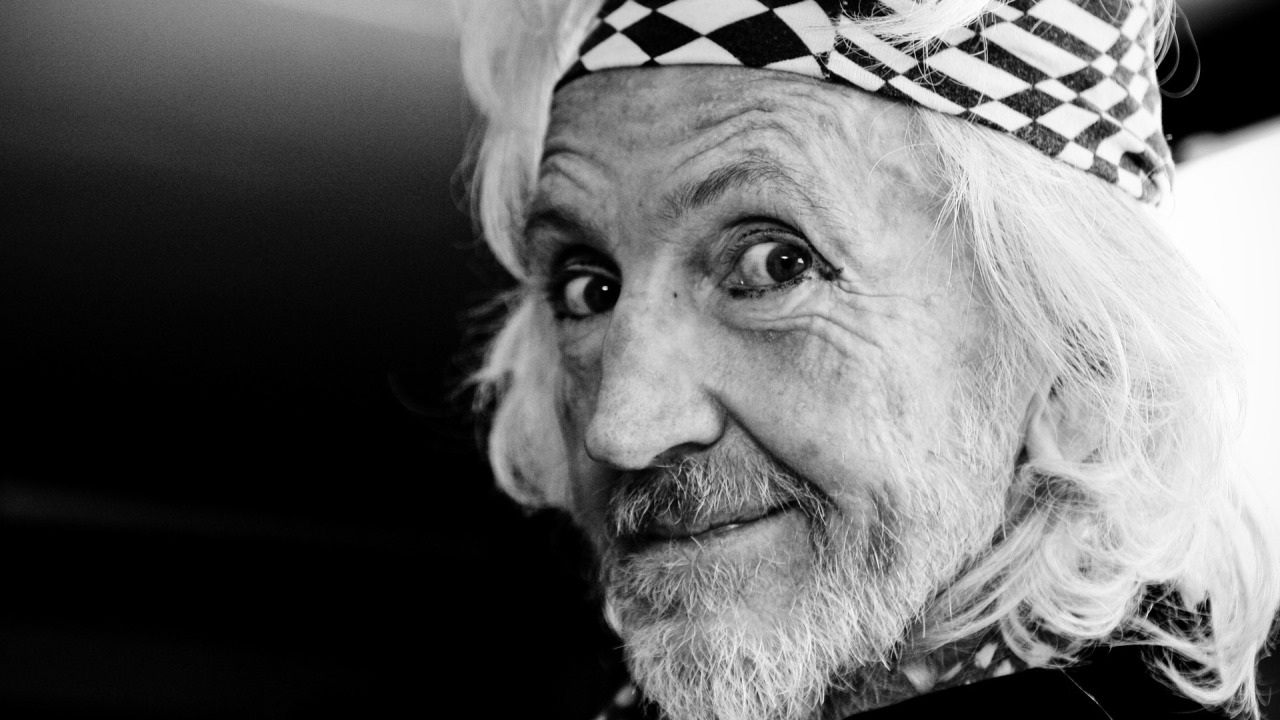Sid Smith pays tribute to a genuine rock legend.
Daevid Allen has died away at the age 77. His decision to forego treatment following the return of his cancer last year and let nature take its course seems typical of the man who had spent a lifetime in music seeing where things might take him; venturing off into the unknown on a great adventure was something Allen made a habit of.
His influence on progressive music was both long-standing and profound. Inspired by beat writers such as Jack Kerouac and William Burroughs and a yearning for jazz, Allen left his native Australia in 1960. His arrival in the Europe and the UK proved to be a catalyst in the artistic development on those he met. Just in his early 20s, Allen wound up as a lodger in a house near Canterbury belonging to Robert Wyatt’s parents. To the schoolboy Wyatt, Daevid was the very embodiment of the wandering beat poet; unconventional, iconoclastic, different and exciting to be with. Wyatt told his biographer Marcus O’Dair: “He made me realise, just by the way he live, that you could have a life that was nothing to do with anything you’d done at school, O-levels or geography or arithmetic or any of that. There was a whole other way of having a life that didn’t require that. That was really where I got the confidence, or the insight - from seeing Daevid operate on that basis.”
Hearing The Yardbird’s Still I’m Sad and dropping acid with Kevin Ayers while listening to the newly released Rubber Soul by The Beatles convinced Allen to take a shot at pop music and along with Ayers, Wyatt and later, Mike Ratledge he formed Mr.Head. They would later be christened The Soft Machine after Allen obtained the blessing from William Burroughs to appropriate the title of his 1961 novel. Following numerous gigs and the release of the psychedelic classic single, Love Makes Sweet Music, Allen’s time with the group came to an end after he was refused re-entry into the UK following a European tour.
It was again typical of Allen’s personality that he turned this setback into an advantage. Taking up residence in France, he gathered around him a loose collective of players that would eventually coalesce into Gong. Albums such as Banana Moon and Magick Brother swirl with a rangy eclecticism that shoots folk, jazz, twisted blues and an experimental sensibility through the prism of Allen’s humour and satirical take on the world. It was not until the release of Camembert Electrique in 1971 that Gong came into sharp focus. It was from this blueprint, that the classic trilogy of Flying Teapot, Angel’s Egg and You were constructed and the refined.
Just as he had been with early Soft Machine, Allen was a galvanising and liberating force for many of the musicians who passed through Gong at this time. The shimmering, spacey glissando interludes and dizzying cyclical mandala-riffing and dervish-like nursery rhyme-style singalongs were an essential part of Allen’s musicality. When band and record company politics corroded the bonds that held that version of Gong together, as Allen puts it: “I skedaddled it till it came back down to earth.” His work with Here And Now in the late 70s, stints with Euterpe and his solo releases and collaborations provided a creative outlet during the 80s and 90s. However, it was always Gong that resonated the most and for which he was best known. After numerous line-ups, including a reunion with Steve Hillage, 2014’s I See You showed that Allen had lost none of his creative powers despite his advancing illness.
“I can accept that my days are numbered,” Daevid told me when I interviewed him last year about the making of I See You. Allen was not sad or mawkish at the prospect of death, something he accepted as being an entirely natural part of life. In refusing treatment for his cancer in February this year Allen knew it wouldn’t be too long before his next next adventure would begin. He leaves behind a musical legacy that is rich, funny, baffling, ambitious, experimental and above all else, steeped with a deep regard for humanity. In what was likely to have been his last interview, while accepting that he was moving on, he wanted the band he’d created and its legacy to continue.
“My greatest wish,” he told me, “is that Gong can become a musical tradition and continue to give pleasure, excitement and positive uplift for a long time after I am gone.”

